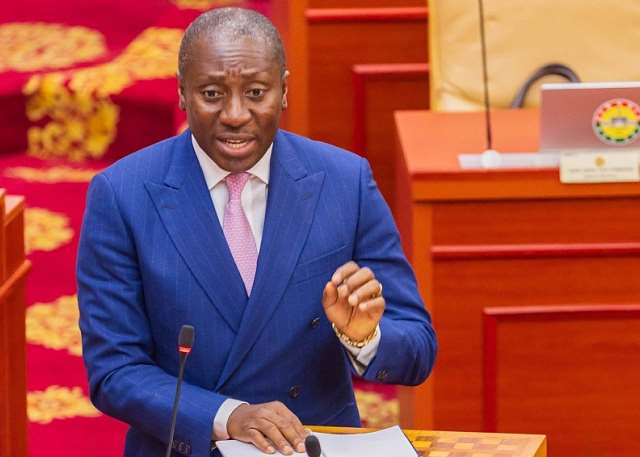The political landscape in Ghana is witnessing a growing tension between the executive and judicial branches, centered around petitions filed against Chief Justice Gertrude Torkornoo. Minority Leader Alexander Afenyo-Markin has voiced strong concerns, characterizing the petitions as a politically motivated attempt by elements within the ruling NDC government to destabilize the judiciary and compromise its independence. He alleges a deliberate strategy to undermine the Chief Justice, warning that this sets a dangerous precedent that could erode the very foundation of Ghana’s democratic system. Afenyo-Markin’s appeal for judicial solidarity underscores the gravity of the situation, as he perceives the actions against the Chief Justice as a broader threat to the entire judicial body.
Afenyo-Markin’s pronouncements followed a meeting of his party’s National Executive Committee to review the Oquaye Committee report. While the report itself is unrelated to the judiciary, it prompted Afenyo-Markin to draw parallels and emphasize the critical importance of respecting the autonomy of all state institutions. He argues that a politically influenced judiciary undermines the rule of law and jeopardizes the fair and impartial dispensation of justice. His pointed criticism of the NDC government suggests a calculated effort to manipulate the judicial system for partisan gain, a move he warns could have severe long-term consequences for Ghana’s democracy. He called on judges across the country to unite against what he sees as an orchestrated attack on their independence and the integrity of the judicial system.
The three petitions against Chief Justice Torkornoo, filed between February 14 and March 17, 2025, allege misconduct and incompetence. These accusations have triggered a constitutional process outlined in Article 146, requiring President John Dramani Mahama to refer the petitions to the Council of State for review. This process itself has become a point of contention, with Afenyo-Markin highlighting the potential for political interference. The Chief Justice’s request for access to the petitions underscores her commitment to due process and her desire to mount a robust defense against the allegations. The premature circulation of documents on social media further complicates the matter, raising questions about transparency and the potential for prejudicing public opinion before the formal proceedings have even commenced.
The Chief Justice’s office has emphasized the need for strict adherence to constitutional procedures, stressing that any actions concerning her tenure must be conducted with the utmost transparency and fairness. This insistence on upholding established protocols reflects a broader concern for protecting the judiciary’s independence and preserving public trust in its impartiality. The unfolding situation represents a crucial test for Ghana’s democratic institutions, particularly the delicate balance of power between the executive and judicial branches. The outcome of this process will have significant implications for the future of judicial independence in the country.
The broader context of these events underscores the vulnerability of democratic institutions to political maneuvering. Concerns raised by Afenyo-Markin point to a potential pattern of undermining independent bodies, a tactic that could have far-reaching consequences for the rule of law and the stability of Ghana’s democracy. His call for judicial unity serves as a stark warning against the dangers of political encroachment on the judiciary and highlights the need for vigilance in safeguarding the principles of separation of powers. The ongoing situation surrounding the Chief Justice’s petitions serves as a critical reminder of the importance of upholding constitutional processes and respecting the autonomy of key institutions.
The current crisis facing the Ghanaian judiciary highlights a broader challenge confronting democratic systems worldwide: the delicate balance between accountability and independence. While mechanisms for addressing potential misconduct within the judiciary are essential for public trust, these mechanisms must be protected from political manipulation. The allegations against Chief Justice Torkornoo, and the surrounding political controversy, underscore the importance of robust, transparent, and impartial processes for investigating and adjudicating such matters. The future of judicial independence in Ghana, and the health of its democracy, hinges on the ability of its institutions to navigate this complex terrain and uphold the principles of fairness, due process, and the rule of law.














